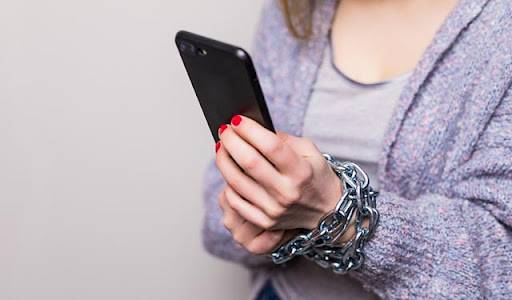Introduction
Millions of people use social media to stay in touch with others. Social media addiction is causing people to lose hours of their time while also affecting multiple aspects of their lives. Therefore during the extended periods of lockdowns, social media grew as it was the only helpful link with the world outside.
Find out about Social Media Anxiety
Our Wellness Programs
What is social media addiction?
People from all walks of life and age groups usually use one or more social media channels. Therefore on the surface, this hobby that connects individuals to share knowledge and personal problems seem innocent. But soon, it starts devouring your time and interfering with your life. Social media is a favorite pastime as people are constantly glued to mobile screens for hours, irrespective of age. According to estimates, one out of ten people may exhibit social media addiction.
Finally, social media addiction falls under the category of behavioural addiction. For many people, social media is not a mere hobby or pastime. It is more of a compulsion because they compulsively check social media sites. These folks are constantly scrolling through shares, videos, and posts as the hobby becomes an addiction, causing several harmful effects on the brain.

Looking for services related to this subject? Get in touch with these experts today!!
Experts

Kirti Bajpai

India
Psychologist
Experience: 5 years

Neelam Parwani

India
Life Coach
Experience: 5 years

Sapna Zarwal

India
Psychologist
Experience: 19 years

Ritu Singh

India
Life Coach
Experience: 16 years

Davis Emerson

India
Psychologist
Experience: 6 years
What are the symptoms of social media addiction?
Social media addiction can manifest in several ways. Now, the presence of the following symptoms may help you assess the influence of social media on your daily life.
- Excessive use of social media can hamper productivity as a significant amount of time is lost checking sites, posting status, and watching videos.
- People sometimes seek solutions and answers to common concerns through social media sites.
- Some people use social media while eating, hanging out with friends, during meetings, or watching a favorite T.V. program with family.
- People constantly desire to check mobile frequently for updates or new posts.
- They feel restless if they cannot check social media sites for a long time.
- They check social media first thing in the morning and the last thing while going to bed.
- They lose interest in other hobbies or valuable activities like exercise.
- They have a history of unsuccessful attempts to reduce time on social media.
What are the causes of social media addiction?
- Social media addiction involves a reward system pattern similar to other types of addiction.
- The activity of using social media has a significant effect on the brain.
- The brain releases neurotransmitters like dopamine, which is a feel-good chemical after you start browsing your favorite social media sites.
- The brain establishes a link between social media use and dopamine [1] release; the neurotransmitter [2] acts as a reward after social media use.
- This process continues till the brain becomes habituated to the reward or the feeling of pleasure after dopamine release because of exposure to social media.
- The likes and thumbs-up emojis you receive for a particular post boost dopamine release.
- Since the effect of dopamine lasts only for a short time, the brain signals the individual to go back to social media sites, resulting in social media addiction.
- Many people who experience such addiction have a history of using social media to minimize the feeling of loneliness because of lockdowns.
How to spot social media addiction?
People experiencing social media addiction may know that the medium must not dominate their life. They must constantly go back to social media sites irrespective of the surrounding environment. The following are some signs to spot social media addiction in a person.
- Impulsive activity– Checking social media sites is premature for people with an addiction. They open social media apps first thing in the morning, several times during the day, and before retiring.
- Desperation– When one has been offline for an extended period, there may be a feeling of hopelessness and urgency to reach for the phone. Fear of being left alone after losing contact with the phone is a vital sign of addiction.
- Imagining the sound of notification– Preoccupation with social media makes a person imagine notification sounds and check the phone.
- Endless scrolling activity– One may have severe social media addiction if they are constantly scrolling and checking posts. The involvement is so intense that healthy activities or favorite hobbies are neglected.
Visit United We Care if you feel social media addiction is hampering your life.
How to beat social media addiction?
Furthermore, social media addiction can become pathological as the medium is highly demanding. It can seriously impact your productivity and relationships at home, school, or the workplace. Now, treatment is possible if it negatively impacts one’s life.
One must consciously prevent social media from taking over hobbies, studies, or personal communications with people. So do not view social media as an escape route. Now be mindful of your surroundings whenever you wish to check your social media account. Ask yourself whether checking a social media site will rob you of the time you may use for a constructive purpose.

These are some practical solutions to mitigate social media use:
- Switch off notifications.
- Setting up a specific period to check your social media accounts will help you more productively use your time.
- You are feeding it every time you open your phone. Keep your phone out of reach when working, exercising, sleeping, and eating.
- Consider staying away from social media for a week or a month to practice social media detox. It is the most effective strategy to beat it. Make sure to exit your virtual world periodically.
Learn more about Hyperfixation vs. Hyperfocus
Do you think life is pointless?
Conclusion
Furthermore, having a pathological relationship with your phone can deprive you of life’s simple pleasures. Social media addiction is detrimental to productivity at school and in the workplace. Therefore researchers confirm that the optimum time to use social media is thirty minutes daily [3]. So taking firm steps to reduce phone use for browsing social media sites helps improve your physical and mental well-being.
Visit United We Care to discover ways to overcome social media addiction.
Follow our Social Media for more updates:
References
| [1] | H. Cristol, “What Is Dopamine?,” WebMD, Jun. 19, 2019. [Online]. Available: https://www.webmd.com/mental-health/what-is-dopamine#:~:text=Dopamine%20is%20a%20type%20of,ability%20to%20think%20and%20plan.. [Accessed: Jul. 20, 2022] |
| [2] | “Neurotransmitters: What They Are, Functions & Types,” Cleveland Clinic, 2022. [Online]. Available: https://my.clevelandclinic.org/health/articles/22513-neurotransmitters#:~:text=Neurotransmitters%20are%20chemical%20messengers%20that,muscle%20cell%20or%20a%20gland.. [Accessed: Jul. 20, 2022] |
| [3] |
L. Holmes, “This Is How Much Time You Should Spend On Social Media Per Day,” HuffPost, Nov. 12, 2018. [Online]. Available: https://www.huffpost.com/entry/how-much-time-on-social-media_n_5be9c148e4b0783e0a1a8281. [Accessed: Jul. 20, 2022]
|
















